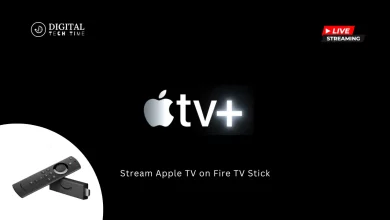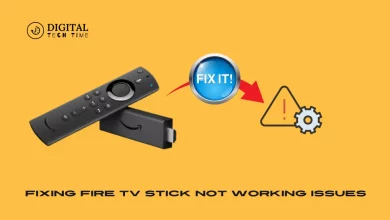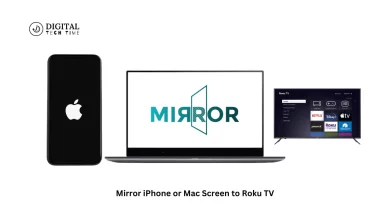The Best Rufus Alternatives for Bootable USBs
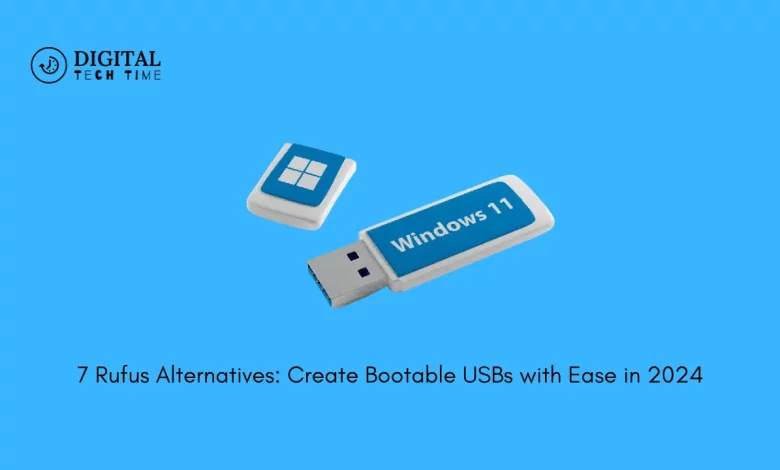
As an experienced writer, I understand the importance of having a reliable tool to create bootable USB drives. Rufus has long been a popular choice among users. Still, as technology evolves, exploring alternative options that may better suit your needs is essential. In this article, we’ll dive into the top 7 Rufus alternatives that can help you easily create bootable USBs in 2024.
Rufus is a free and open-source utility that allows users to create bootable USB drives from ISO files or other disk images. This versatile tool supports various operating systems, from Windows to Linux, and even specialized distributions. However, as with any software, there may be times when you need to explore alternative options, whether it’s for additional features, improved user experience, or compatibility with your specific requirements.
Table of Contents
Why consider Rufus alternatives?
While Rufus is a reliable tool, there are several reasons why you might want to consider exploring alternative options:
- Expanded Functionality: Some Rufus alternatives may offer additional features, such as the ability to create multiboot USBs, support for more file formats, or enhanced customization options.
- Improved User Experience: Depending on your preferences, specific Rufus alternatives may provide a more intuitive or user-friendly interface, making creating bootable USBs more efficient.
- Compatibility Concerns: If you’re working with specific operating systems, hardware configurations, or file types, some Rufus alternatives may offer better compatibility and support.
- Licensing and Cost: While Rufus is free, some users may prefer alternatives that provide commercial support, enterprise-level features, or a more comprehensive suite of tools.
Criteria for selecting the best Rufus alternative
When choosing a Rufus alternative, it’s essential to consider the following criteria:
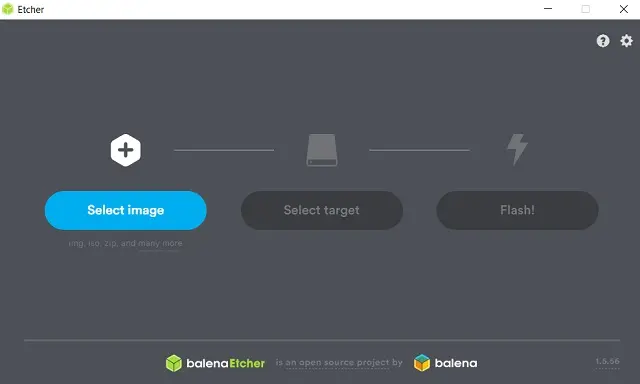
- Ease of Use: The tool should have a straightforward and intuitive interface, allowing you to create bootable USBs with minimal effort.
- Compatibility: The alternative should support various operating systems, file formats, and hardware configurations.
- Functionality: Look for features important to your needs, such as multiboot support, custom partitioning, or advanced customization options.
- Performance: The tool should be efficient, with fast processing times and reliable results.
- Security: The alternative should prioritize security, ensuring the integrity of your data and the bootable USB drive.
- Cost and Licensing: Consider whether the tool is free, open-source, or requires a paid license and whether the cost aligns with your budget and requirements.
Rufus alternative: Etcher
Etcher is a cross-platform, open-source utility that simplifies creating bootable USB drives. Its clean and user-friendly interface makes it an excellent choice for novice and experienced users.
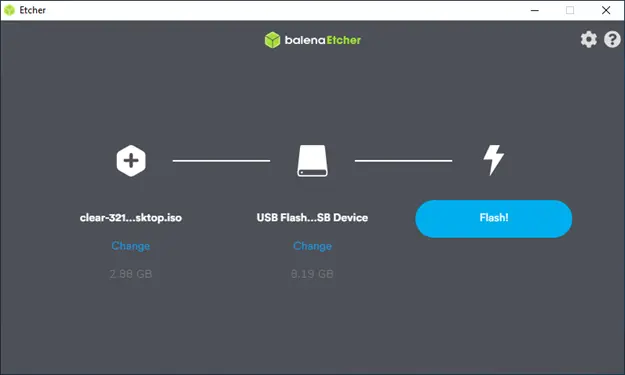
Key Features of Etcher:
- Compatibility: Etcher supports various operating systems, including Windows, macOS, and Linux.
- Ease of Use: The tool’s intuitive interface guides you through selecting the image file, choosing the target drive, and flashing the USB.
- Reliability: Etcher uses a validation process to ensure the integrity of the bootable USB, reducing the risk of errors or corrupted images.
- Portability: Etcher can be run directly from the USB drive, making it a portable solution for creating bootable USBs.
- Open-Source: Etcher is an open-source project, which means it’s free to use and can be customized or extended by the community.
Rufus alternative: UNetbootin
UNetbootin is another popular Rufus alternative that allows you to create bootable USB drives for various operating systems, including Linux, Windows, and even some specialized distributions.
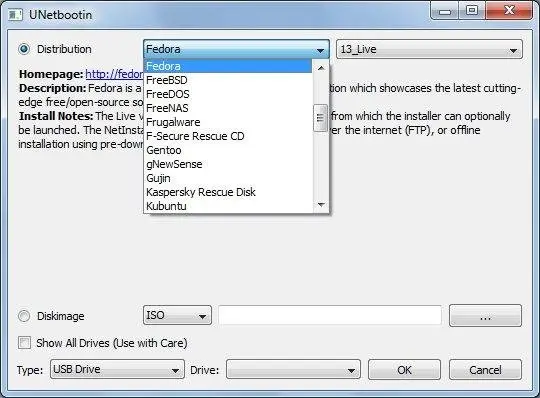
Key Features of UNetbootin:
- Extensive OS Support: UNetbootin supports a wide range of Linux distributions, Windows, and other specialized operating systems.
- Automated Downloading: The tool can automatically download and install the necessary operating system files, simplifying the process.
- Customization Options: Users can customize the bootable USB by adding additional software or modifying the boot menu.
- Multiboot Support: UNetbootin enables the creation of multiboot USB drives, allowing you to boot multiple operating systems from a single USB.
- Cross-Platform: UNetbootin is available for Windows, macOS, and Linux, making it a versatile solution.
Rufus alternative: WinToUSB
WinToUSB is a powerful tool that goes beyond creating simple bootable USBs. It allows you to install Windows directly onto a USB drive, effectively turning it into a portable Windows installation.
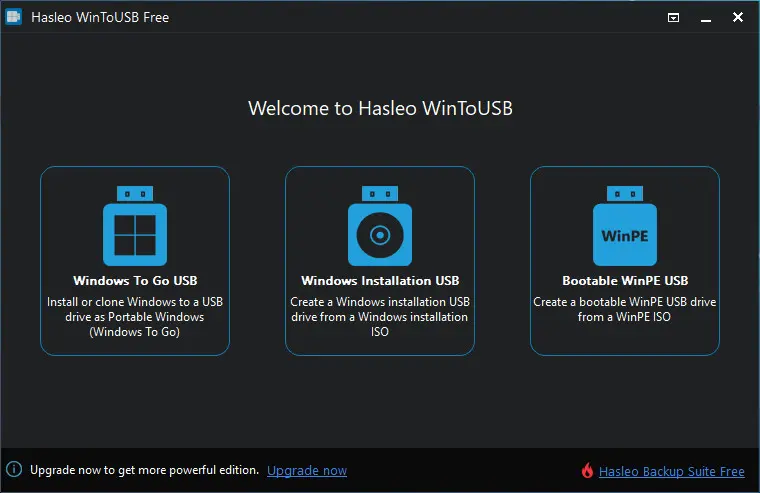
Key Features of WinToUSB:
- Windows Installation: WinToUSB allows you to install a full version of Windows, including Windows 10 and 11, directly onto a USB drive.
- Portable Windows: The bootable USB created with WinToUSB can boot and run Windows on any compatible computer, making it a highly versatile solution.
- Disk Management: The tool provides advanced disk management features, allowing you to partition, format, and manage the USB drive with ease.
- Backup and Restore: WinToUSB can create backups of your Windows installation, which can then be restored to the same or a different USB drive.
- Enterprise-Level Features: The tool offers enterprise-level features, such as support for BitLocker encryption and creating Windows To Go workspaces.
Rufus alternative: RMPrepUSB
RMPrepUSB is a comprehensive tool for creating bootable USB drives. It offers a range of advanced features for managing and customizing bootable media.
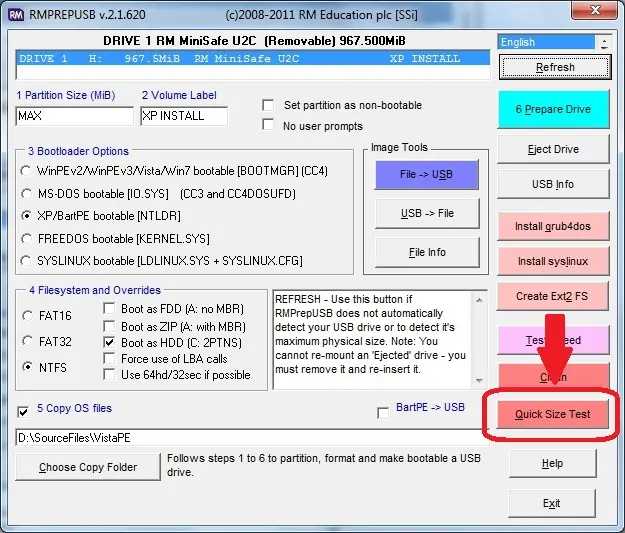
Key Features of RMPrepUSB:
- Multiboot Support: RMPrepUSB allows you to create multiboot USB drives, enabling you to boot multiple operating systems from a single USB.
- Customization Options: The tool provides extensive customization options, allowing you to modify the boot menu, add custom scripts, and create bootable images.
- Disk Management: RMPrepUSB offers advanced disk management features, including the ability to partition, format, and manage the USB drive.
- Backup and Restore: The tool can create backups of your bootable USB configurations, which can then be quickly restored or shared with others.
- Enterprise-Level Features: RMPrepUSB includes enterprise-level features, such as support for UEFI boot modes and creating Windows To Go workspaces.
Rufus alternative: Ventoy
Ventoy is a unique Rufus alternative that takes a different approach to creating bootable USB drives. Instead of writing a single bootable image to the USB, Ventoy allows you to store multiple ISO files on the drive, enabling you to boot from any of them.
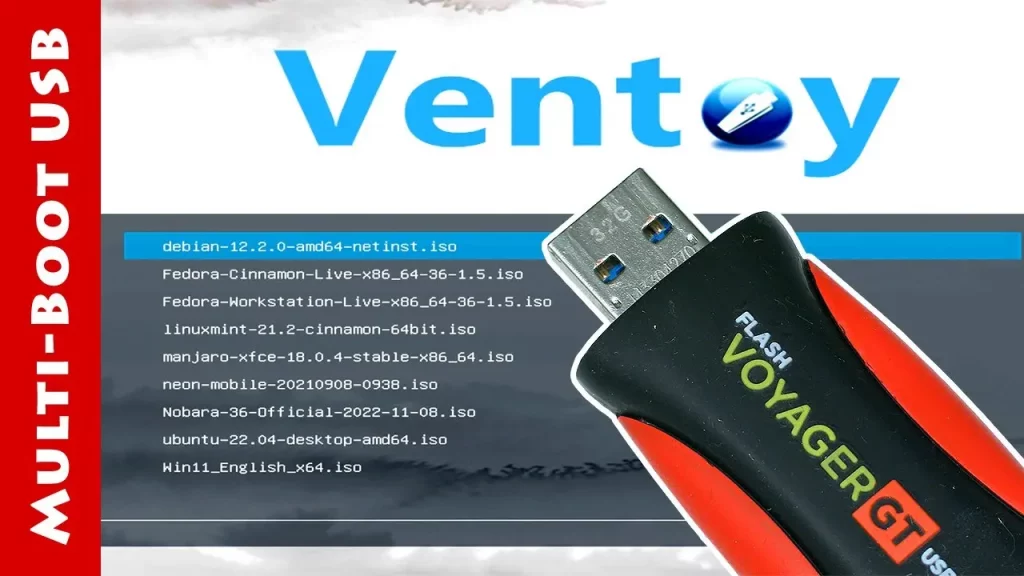
Key Features of Ventoy:
- Multiboot Capability: Ventoy allows you to store multiple ISO files on a single USB drive, enabling you to boot from any of them.
- Easy to Use: The Ventoy interface is straightforward, making adding or removing ISO files from the bootable USB easy.
- Compatibility: Ventoy supports various operating systems, including Windows, Linux, and specialized distributions.
- Persistence: Ventoy can create persistent storage on the USB drive, allowing you to save your settings and data between boot sessions.
- Customization: Users can customize the Ventoy boot menu, add plugins, and even create their own Ventoy-based bootable USB images.
Rufus alternative: Universal USB Installer
The Universal USB Installer is a user-friendly tool for creating bootable USB drives for various operating systems, including Windows and Linux.
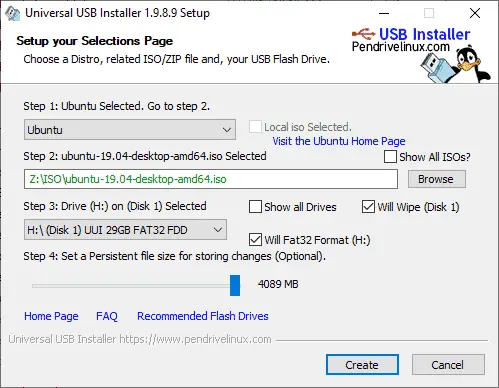
Key Features of Universal USB Installer:
- Extensive OS Support: The Universal USB Installer supports various operating systems, including Windows, different Linux distributions, and even some specialized distributions.
- Automated Downloading: The tool can automatically download and install the necessary operating system files, streamlining the process.
- Persistence: The Universal USB Installer allows you to create persistent USB drives to save your data and settings between boot sessions.
- Multilingual Support: The tool is available in multiple languages, making it accessible to a global audience.
- Portable: The Universal USB Installer can be run directly from the USB drive, making it a portable solution for creating bootable USBs.
Rufus alternative: YUMI
YUMI (Your Universal Multiboot Installer) is a powerful tool for creating multiboot USB drives. These drives allow you to boot multiple operating systems from a single USB drive.
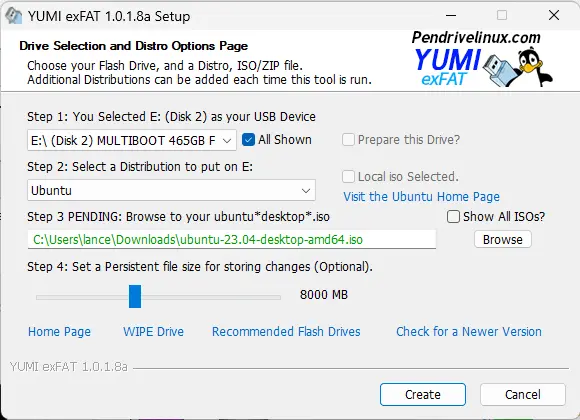
Key Features of YUMI:
- Multiboot Capability: YUMI enables you to create multiboot USB drives, allowing you to boot multiple operating systems from a single USB.
- Extensive OS Support: The tool supports various operating systems, including Windows, Linux, and specialized distributions.
- Customization Options: Users can customize the boot menu, add additional software or drivers, and even create multiboot configurations.
- Persistence: YUMI can create persistent USB drives, enabling you to save your data and settings between boot sessions.
- Portable: The tool can be run directly from the USB drive, making it a portable solution for creating multiboot USBs.
Comparison of the top 7 Rufus alternatives
To help you choose the best Rufus alternative for your needs, here’s a comparison table of the critical features of the tools we’ve discussed:
| Feature | Etcher | UNetbootin | WinToUSB | RMPrepUSB | Ventoy | Universal USB Installer | YUMI |
|---|---|---|---|---|---|---|---|
| Compatibility | Windows, macOS, Linux | Windows, macOS, Linux | Windows | Windows | Windows, Linux | Windows | Windows |
| Ease of Use | High | High | Moderate | High | High | High | Moderate |
| Multiboot Support | No | Yes | No | Yes | Yes | No | Yes |
| Customization Options | Moderate | High | High | High | High | Moderate | High |
| Disk Management | Basic | Moderate | High | High | Moderate | Moderate | Moderate |
| Backup and Restore | Basic | Basic | High | High | Moderate | Basic | Moderate |
| Enterprise-Level Features | No | No | Yes | Yes | No | No | No |
| Licensing | Open-Source | Open-Source | Paid | Paid | Open-Source | Open-Source | Open-Source |
Frequently Asked Question
Q: What is Rufus, and why is it a popular tool for creating bootable USBs? A: Rufus is a free and open-source utility that allows users to create bootable USB drives from ISO files or other disk images. It’s a popular choice due to its versatility, support for a wide range of operating systems, and user-friendly interface.
Q: What are the main reasons for considering Rufus alternatives? A: Some key reasons to explore Rufus alternatives include expanded functionality, improved user experience, better compatibility with specific requirements, and different licensing or cost considerations.
Q: How do I choose the best Rufus alternative for my needs? A: When selecting a Rufus alternative, consider factors such as ease of use, compatibility, functionality, performance, security, and cost/licensing. Evaluate the features and capabilities of each tool to find the one that best fits your requirements.
Q: Can I create multiboot USB drives with Rufus alternatives? A: Yes, several of the Rufus alternatives we’ve discussed, such as UNetbootin, RMPrepUSB, and YUMI, offer the ability to create multiboot USB drives, allowing you to boot multiple operating systems from a single USB.
Q: Is it safe to use open-source Rufus alternatives? A: Yes, many of the Rufus alternatives we’ve covered, such as Etcher, UNetbootin, Ventoy, and YUMI, are open-source projects that prioritize security and have strong community backing. As with any software, it’s always a good idea to research and verify the reputation and security practices of the tool before using it.
Conclusion
In the ever-evolving world of technology, staying informed about the best tools and alternatives is essential. By exploring the top 7 Rufus alternatives, you can find the perfect solution to create bootable USB drives that meet your needs in 2024.
This article has provided a comprehensive overview of the leading Rufus alternatives, whether you’re looking for expanded functionality, improved user experience, better compatibility, or different licensing options. Take the time to evaluate each tool’s features and capabilities and choose the one that best meets your requirements.
Suppose you’re ready to take the next step and create a bootable USB with ease. In that case, I encourage you to explore the Rufus alternatives presented in this article. With the right tool, you can streamline your workflow, enhance productivity, and unlock new possibilities for your digital endeavors. Start your journey towards a more efficient and versatile bootable USB experience today!
Related Article: Solving USB-C to HDMI Connection Problems on Windows 10/11


